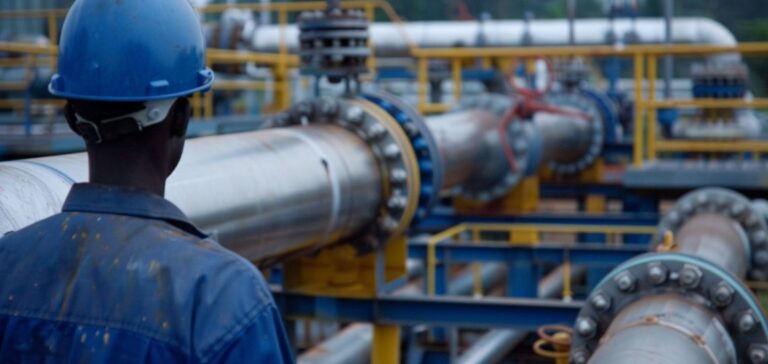Cameroon continues its efforts to strengthen its energy production capacity by initiating two gas-fired power plant projects with a combined installed capacity of 500 megawatts (MW). These projects, planned under the Public-Private Partnership (PPP) model, involve facilities in Bekoko, near Douala, for 350 MW, and within Douala itself for 150 MW. According to Cameroon’s Ministry of Water and Energy, both plants are technically ready to proceed, but their implementation remains conditional upon the National Hydrocarbons Corporation (SNH) confirming the availability of natural gas at the selected sites. No precise official timeline regarding construction or completion dates has yet been provided.
Bekoko project
The planned thermal power plant in Bekoko, with an installed capacity of 350 MW, represents the primary project among the two new energy facilities. The Turkish company Aksa Enerji Üretim A.Ş. has officially expressed interest in this project and has already conducted the mandatory preliminary Environmental and Social Impact Assessment (ESIA) studies. To secure natural gas supply, a preliminary, non-binding agreement has been established between Aksa Enerji Üretim and Gaz du Cameroun, a local subsidiary of Victoria Oil & Gas, a British company involved in natural gas operations in Cameroon. However, the definitive financial terms of this public-private partnership have not yet been made public.
Douala project
The second thermal power plant, with a smaller planned capacity of 150 MW, will be located directly in the city of Douala, the country’s major economic hub. Unlike the Bekoko project, details concerning potential private partners, planned investment amounts, or specific financing modalities for this project currently remain confidential. As with Bekoko, natural gas availability for this facility will also be assured by the SNH, an essential condition emphasized by the Cameroonian government to ensure the project’s economic viability.
Central role of natural gas
Natural gas has been identified by Cameroonian authorities as a key element of the country’s future national energy mix, with an expected contribution of around 10% by 2035, up from its current marginal share. This strategy particularly aims at reducing the country’s dependency on hydroelectric plants, frequently affected by seasonal variations in production linked to climatic conditions. Currently, only the Kribi gas-fired power plant (216 MW), operational since 2013, provides a significant presence of natural gas within the national grid. A planned expansion of this plant to 330 MW, announced several years ago, has yet to materialize despite interest expressed by the African Development Bank (AfDB).
The effective commissioning of these two new power plants will thus largely depend on the SNH’s ability to ensure a stable and sustainable natural gas supply, a critical factor for Cameroon’s energy development.






















